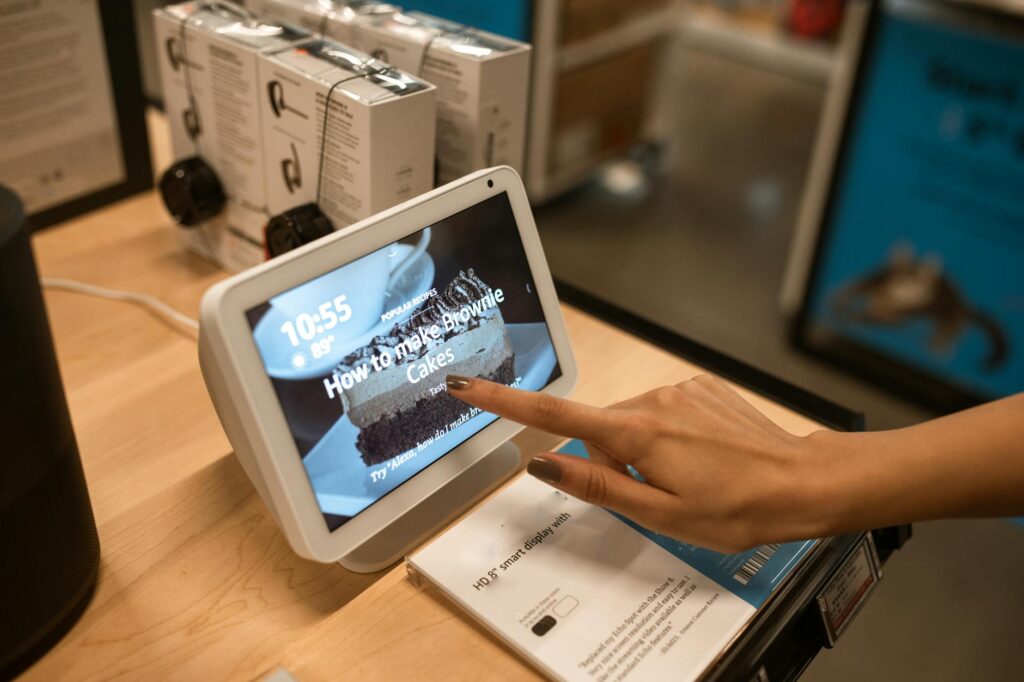Over Ten Leading Products Launched, Humanoid Robots Steal the Spotlight –Town Establishes a Complete Robotic Industry Chain, Business News

Business new tamfitronics
BEIJING, CHINA – Media OutReach Newswire – 26 August 2024 – After achieving the world’s first humanoid running with a full-sized pure electric humanoid robot, “Tiangong” has demonstrated new skills. Walker S Lite has started its training in automotive smart factories, and the world’s first orthopedic surgical robot equipped with AI deep learning technology has been unveiled. Soft robots have also broken through industrial application bottlenecks. On August 21, the 2024 World Robot Conference opened in Beijing E-Town (Beijing Economic-Technological Development Area), showcasing over ten innovative products from Beijing E-Town at the 2024 World Robot Expo, with humanoid robots taking center stage. Through “Robot Mobilization,” Beijing E-Town has developed internationally leading humanoid robots, AI medical robots, and autonomously controlled key components, transforming these advancements into new productivity and continuously enhancing the innovation capability of the robot industry.
Dancing, bowing, greeting, grabbing objects by sound… when the nation’s first general-purpose humanoid robot platform “Tiangong” demonstrated these new skills, it once again caught attention. The last sensation was in April this year, when “Tiangong,” independently developed by the Beijing Embodied Intelligence Robot Innovation Center (referred to as the “Innovation Center”), achieved the world’s first humanoid running at a stable speed of 6 km/h with a full-sized pure electric humanoid robot. Four months later, “Tiangong” has been upgraded again, using a predictive reinforcement imitation learning method based on state memory, mastering more varied movements and speech-interactive grabbing capabilities under the support of a large embodied intelligence model. “When a person gives a voice command, the embodied intelligent robot can complete a set of grab-and-release actions based on the ‘open vocabulary object detection and arbitrary object segmentation multimodal model.’ We have now connected the embodied intelligence model pipeline, meaning robots can understand human commands, break down tasks, and complete them. In the future, robots will be able to help humans with more tasks,” explained Zhang Qiang, a humanoid robot algorithm expert at the Innovation Center. “We are committed to the development of key technologies and ecosystem construction for embodied intelligent robots. Currently, we are based in Beijing E-Town, and through the ‘Tiangong’ and ‘Kaiwu’ projects, we aim to promote technological innovation and industrial development, leading the industry in solving common problems.”
“We are launching two new products,” said a representative from the “Little Giant” enterprise, Tsino-Dynatron. “Among them, targeting the development trend of humanoid robots, we have independently developed the CoolDrive Mini ANT networked micro servo drive, which features high power density, high switching frequency, high bandwidth response, and low loss, suitable for applications requiring compact size and high bursts, such as humanoid robots and mechanical dogs.” Lingzu Times, established in Beijing E-Town just over eight months ago, has broken through the innovation bottleneck between lightness and stability in robot joints. Founder and COO Shao Yuanxin said, “Robot joints are the key to making humanoid robots as flexible as humans. Our self-developed Robstride04, a 120N.m integrated joint module, can drive medium-sized bipedal humanoid robots or full-sized quadruped robots.” The robotic arm used a “blue claw” to steadily grab and move a pot of tea, while soft robots demonstrated the secrets of “soft fingers” in industrial applications through an intelligent interactive robot tea art demonstration platform. The company’s self-developed flexible gripper can handle nearly 96% of irregular and fragile objects in industrial production, a level of technical complexity that only two companies globally have mastered.
In addition to significant breakthroughs in key technology development, more robots in Beijing E-Town have transformed into new productivity. UBTECH, which established its humanoid robot headquarters in Beijing E-Town this year, showcased its “humanoid robot troupe,” including Walker S and Walker S Lite, and demonstrated industrial humanoid robot solutions on-site. Haobao Yu, Vice President of UBTECH Robotics and Chairman of Beijing UBTECH Intelligent Robotics Co., Ltd., explained, “Combining end-to-end imitation learning, precise visual recognition, and fine full-body motion control technologies, the industrial version of the humanoid robot Walker S Lite has already ‘joined’ several automotive factories, such as collaborating with employees at the CTU inbound loading station in the Zeekr factory to perform handling tasks. It is the first humanoid robot in China to perform the entire process of material box handling tasks, both in execution and public display, with its operational completion and execution difficulty among the top in the industry.”
In the field of high-end medical equipment, Longwood Valley MedTech has launched ROPA, the world’s first orthopedic surgical robot equipped with AI deep learning technology. This AI+ROBOT innovation achieves surgical precision at the sub-millimeter level, addressing traditional surgical challenges such as reducing operation time, minimizing surgical risks, and alleviating patient pain,” said Dr. Zhang Yiling, Chairman of Longwood Valley MedTech. “With AI deep learning technology certified as ‘internationally leading’ by the Ministry of Industry and Information Technology, ROPA acts like a ‘super brain’ for orthopedic experts, allowing doctors to create individualized 3D surgical plans in just 5-10 minutes using only a patient’s CT scan. The sub-millimeter precision optical positioning system, akin to a ‘digital eye,’ provides real-time monitoring and tracking of the patient’s intraoperative position, helping surgeons overcome the visual limitations and blind spots of traditional surgeries. Paired with the ‘digital hand,’ an independently developed intelligent follow-up technology, every critical step in the surgery is executed with precision, achieving breakthroughs in surgical accuracy.” UNION STRONG showcased an intelligent surgical solution for intracranial aneurysm surgery, including a catheter shaping robot. Qin Lan, founder, chairman, and general manager of UNION STRONG, explained, “This solution is a disruptive innovation product that is both an original Chinese creation and the first of its kind globally. Its core AI software received China’s first Class III registration certificate for innovative medical devices for AI treatment, recognized as ‘internationally leading’ through national scientific and technological achievement evaluations. Through AI treatment and AI decision-making, this solution resolves critical clinical challenges, achieving ‘fully autonomous driving’ for key steps in intracranial aneurysm surgery. It not only enhances surgical precision but also improves safety and effectiveness in treatment.” This reflects Beijing E-Town’s accelerated efforts to build a global hub for “intelligent drug manufacturing.”
Moreover, SMC, a world-class manufacturer of automation control components with a 30-year history in Beijing E-Town, showcased a series of intelligent, energy-saving, and collaborative robot products, including the SMC ZXPE5 series electric vacuum gripper and the MH-X7654 series elastic fingers, which, when paired with Universal Robots, enable workpiece gripping and weighing. The Yaskawa Shougang Robot Co., Ltd.’s practical function training platform demonstrated robot capabilities such as vision-based palletizing and depalletizing, adhesive application, and robot health diagnostics, suitable for vocational college industrial robot teaching and training. JD Logistics presented a “Red Show” with its latest fifth-generation intelligent delivery vehicle, integrating 10 core technologies, including high-precision positioning, fusion perception, and behavior prediction. This vehicle represents the most scalable L4-level autonomous driving application in the industry, featuring remote on/off capabilities and monitoring, allowing real-time vehicle status management to enhance safety and efficiency. Jingcheng Machinery Electric focused on the equipment manufacturing field, showcasing innovative applications of AI technology, including AI-guided welding systems and industrial applications for welding, material handling, and smart brewing production lines. The robot machine tool loading and unloading workstation can be customized based on different characteristics of factory buildings, machine tools, and production materials, using a modular control system covering industries such as metal processing and general parts manufacturing.
Additionally, Tesla’s Optimus humanoid robot made its Beijing debut, featuring 28 active joints and 11 degrees of freedom in its hands. Ti5 Robot launched the new T230 humanoid robot. Yi Gang, Founder of Ti5 Robot, stated, “The T230 is the first humanoid robot in China, standing 2.3 meters tall, primarily used for heavy object handling. By leveraging self-developed lightweight reducers and other core components, we have achieved a robot that is light yet powerful, with strength equivalent to three times that of a normal adult.”
New products and technologies that are both internationally and domestically pioneering continue to emerge and are being transformed into new productivity, thanks to the excellent industrial ecosystem and efficient organizational model of Beijing E-Town. An official from the Beijing Economic-Technological Development Area explained that as the permanent venue for the World Robot Conference, Beijing E-Town has established the “Five Ones” working mechanism: one park, one batch of platforms, one center, one fund, and one group of talents. This mechanism accelerates the construction of a national robotics industry highland, with innovation elements rapidly gathering, capabilities significantly improving, vitality fully released, and innovation entities continuously expanding.
To date, more than 100 robotics ecosystem enterprises have been established, over half of which are specialized and innovative enterprises, with a production scale nearing 10-billion-yuan, accounting for 50% of the city’s robotics industry. Significant breakthroughs have been made in core components such as precision reducers and high-performance servo actuators, and innovative achievements have been realized in specialized and intelligent drilling machines. Particularly in the embodied intelligent robotics industry, key layouts include high-level innovation platforms represented by the Embodied Intelligence Innovation Center, with leading companies like UBTECH and key component companies such as Chietcom, Tsino-Dynatron, and Lingzu Times, forming a comprehensive embodied intelligent robotics industry chain covering core components, main bodies, and applications.
Hashtag: #BeijingE-Town
The issuer is solely responsible for the content of this announcement.
Discover more from Tamfis Nigeria Lmited
Subscribe to get the latest posts sent to your email.



 Hot Deals
Hot Deals Shopfinish
Shopfinish Shop
Shop Appliances
Appliances Babies & Kids
Babies & Kids Best Selling
Best Selling Books
Books Consumer Electronics
Consumer Electronics Furniture
Furniture Home & Kitchen
Home & Kitchen Jewelry
Jewelry Luxury & Beauty
Luxury & Beauty Shoes
Shoes Training & Certifications
Training & Certifications Wears & Clothings
Wears & Clothings
















